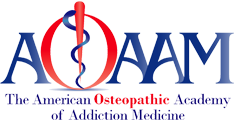Physician Well-Being Hub
Your mental, physical, and emotional health are essential for you and crucial for optimal patient care. By exploring strategies to prevent burnout, manage stress, and cultivate a balanced lifestyle, you enhance your professional satisfaction, personal happiness, and the quality of care you provide to your patients. Prioritizing your well-being is not a selfish act but a necessary one as you care for others. Investing in your wellness benefits you and strengthens the healthcare community, promoting a culture of resilience and compassionate care. Remember, you are an integral part of this system and your well-being matters. As healthcare professionals, we share the same mental health concerns as the general population. However, the challenges of our profession can exacerbate these issues, making seeking help more complex. Some state licensing questions may remind you of the 'Miranda Rights' - anything you say may be used against you. Indicating treatment on a licensing application can be a requirement, adding to the complexity of seeking help. This requirement deters physicians from seeking help. To be ADA-compliant, the Federation of State Medical Boards recommends that state licensure questions focus on current impairment meaningful to the provision of medical care. Further, such questions should not seek information about the distant past and limit historical questions to two years or less. Unfortunately, many state boards do not follow this guidance. The AOAAM is committed to empowering its members to advocate for change in their respective states, even though this process may take time. Our Physician Well-Being Committee is here to provide more immediate assistance through this web page. We strongly advocate for self-care, including proper nutrition, exercise, quality sleep, and avoiding alcohol and other substances. We believe that addressing self-care should be a fundamental part of medical education. We recommend these resources to address and prevent depression, anxiety, burnout, and unhealthy substance use.
|
Disclaimer:
As a membership organization, the AOAAM cannot provide medical advice or practitioner referrals. If you need medical advice, please consult your healthcare provider. Resources on this page are provided for informational purposes only. The list is not comprehensive and does not constitute an endorsement by the AOAAM.
